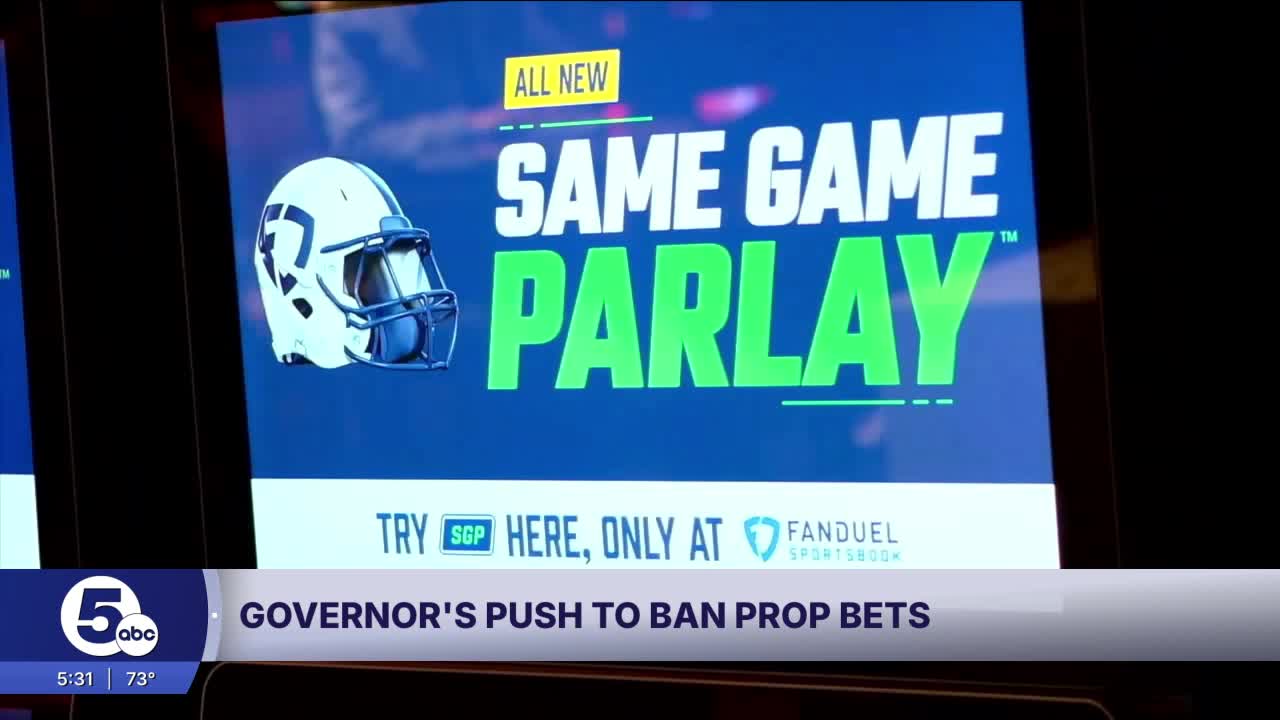CLEVELAND — Gov. Mike DeWine is calling on the Casino Control Commission to ban prop bets from the legal list of bets that can be placed under Ohio's contractual rules for operators.
This comes after two Guardian pitchers, Luis Ortiz and Emmanuel Clase, have been placed on paid leave through the end of August following separate gambling investigations.
The bets were flagged by gambling integrity monitor IC360, which partners with sports books, college conferences and sports leagues, including the MLB, NBA, NFL and NHL, among others:
The governor said he will ask sports commissioners and labor unions from the six major pro sports to support the ban on prop betting to "ensure the integrity of their leagues."
DeWine specified a problem with micro prop bets, which are prop bets involving highly specific events inside games that an individual player completely controls.
“The evidence that prop betting is harming athletics in Ohio is reaching critical mass. First, there were threats on Ohio athletes, and now two high-profile Ohio professional athletes have been suspended by Major League Baseball as part of a ‘sports betting investigation,’” said DeWine. “The harm to athletes and the integrity of the game is clear, and the benefits are not worth the harm. The prop betting experiment in this country has failed badly. I call on the Casino Control Commission to correct this problem and remove all prop bets from the Ohio marketplace.”
DeWine previously expressed concerns about prop betting after student-athletes at the University of Dayton received threats. He and NCAA President Charlie Baker joined together in February 2024 to urge the Ohio Casino Control Commission to make a change when it comes to betting on college sports — saying they'd like to see the commission remove college prop bets on the individual achievements of athletes.
"It's a bombshell request from Governor DeWine," said Brian Pempus, a longtime industry analyst who recently started GamblingHarm.org, which focuses on addiction and problem gambling. He believes a prop betting ban would at least slow the path to addiction by getting rid of in-game betting.
"Which is the most addictive form of sports betting because those bets are settled within seconds or minutes," Pempus said. "That rapid fire nature can lead people to become more hooked on sports betting."
Those opposed argue that banning prop bets wouldn't eliminate them but rather drive those looking to place them either to every other state that offers them or to black market sites operating in Ohio. Sites that aren't being watched by gambling integrity monitors like IC360. That's the company that partners with sports books and sports leagues, including Major League Baseball, the NBA, NFL and NHL, among others.
The very company that reportedly flagged the bets is currently under investigation.
"The fact that they caught this is a sign that it's working," said Ryan Butler, a sports betting analyst with Covers.com.
"It makes you kind of think that the scarier reality is over the last 125 years how often has this happened and no one was able to have the resources to look at it," Butler said.
Speaking with reporters Friday, DeWine, who owns with his family a minor league baseball team in North Carolina, said baseball is a sport built on integrity.
"Whenever you have any kind of scandal, it's not good," he said, adding that he's spoken with Baseball Commissioner Rob Manfred about his feelings on prop bets. "And I think he shares some of the concerns that I have."






